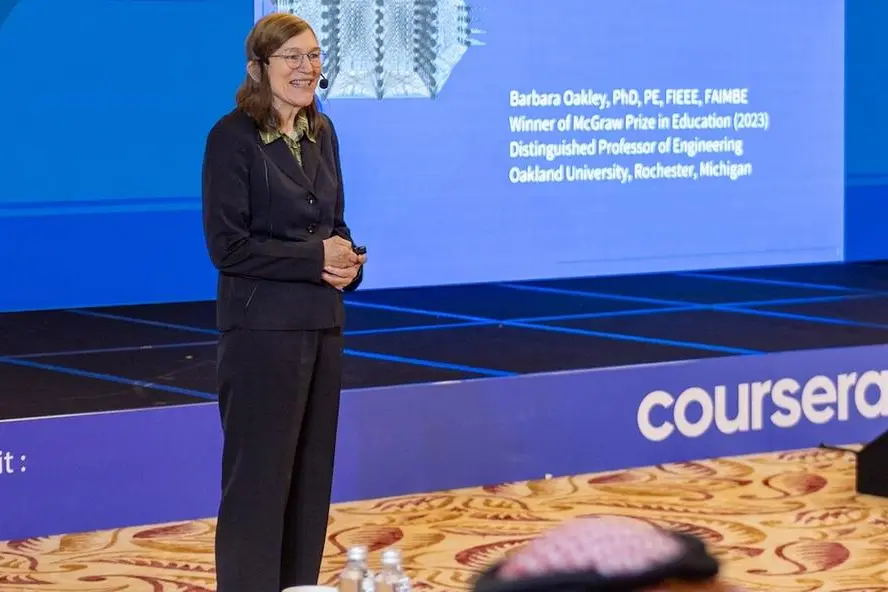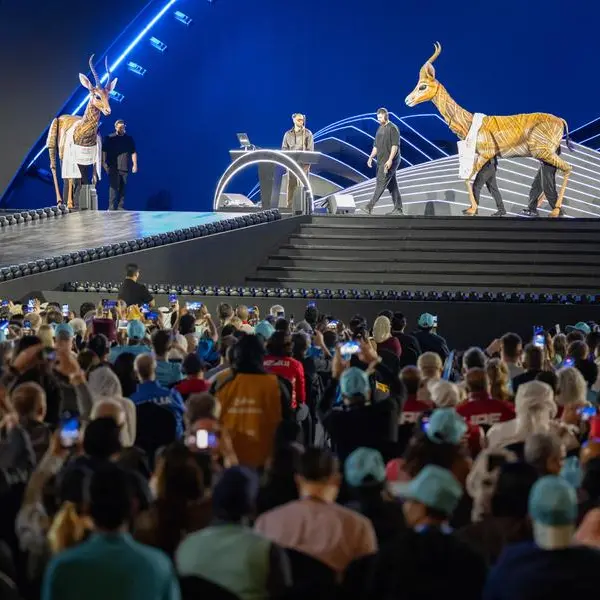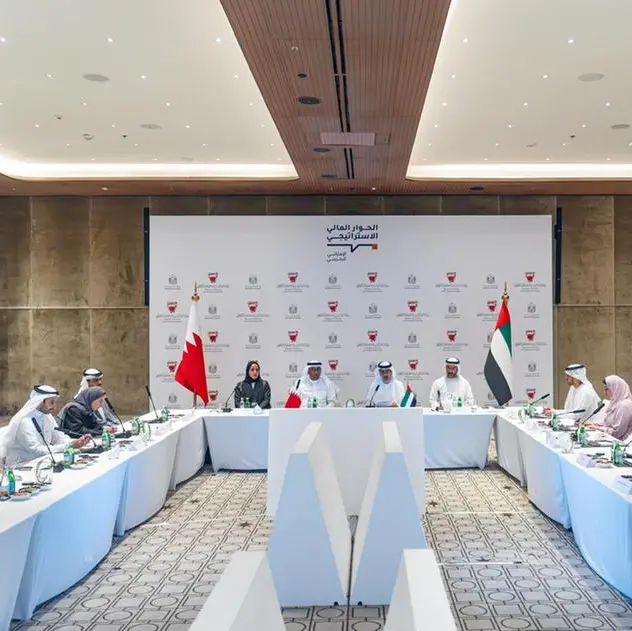PHOTO
Jeddah, Saudi Arabia: In the ongoing effort to enhance women's participation in the workplace across the region, industry experts emphasized the potential of Generative AI in breaking down barriers to accessibility and equity at Coursera's inaugural Women Leadership Summit MEA 2024.
Aligned with the company’s commitment to supporting the region’s talent transformation agenda, the annual gathering held in Jeddah, Saudi Arabia, celebrated female empowerment, ambition, and success across various sectors, including technology, telecommunications, education, and more. The event showcased the inspirational journeys of trailblazers present at the summit.
Serving as a platform for dialogue, sharing insights, debating challenges, and inspiring action to support women’s leadership development opportunities across the Middle East and Africa region, the Coursera Women Leadership Summit featured experts such as Professor Barbara Oakley, PhD, PE, a Professor of Engineering at Oakland University, and Coursera's inaugural Innovation Instructor, who highlighted how Generative AI can accelerate learning and address current challenges facing Arab economies.
Although there have been significant advancements in education, many young people in the region, especially women, are not entering the workforce, underscoring a misalignment between educational outcomes and the needs of the labor market. However, with the Generative AI revolution spreading across industries, there is a unique opportunity to bridge this gap. Strategic investments in AI education can be a game changer in fostering a tech-savvy workforce equipped with the skills necessary for future jobs.
The Coursera Women Leadership Summit MEA shed light on two critical issues: the uneven transition to the digital economy and entrenched socio-cultural norms hindering women's economic participation. It emphasized the mismatch between education and required skill sets, contributing to Arab women facing a high unemployment rate of 42.5% — three times the global average of 14.9%. The summit advocated for embracing new job roles like prompt engineering and data analysis, which offer remote work opportunities for women, bypassing traditional barriers such as childcare responsibilities, transportation constraints, and workplace safety concerns. By aligning education with emerging industry demands and challenging socio-cultural mindsets, the region can unlock its female workforce's full potential, driving economic growth.
Marni Baker Stein, Chief Content Officer at Coursera, said: "If women are not provided equal access to new-age technologies, the future digital economies within the region will perpetuate gender biases and deepen existing inequalities. While many countries, particularly in the GCC, are witnessing greater participation of women in the workforce, there is still a substantial gap to fill. New technologies like Generative AI, if used responsibly, can expedite this process. At Coursera, we see Generative AI as a new chapter in the history of work and education — one that, through strategic and consistent upskilling efforts, and, most importantly, public-private collaboration, can yield transformative results in addressing the challenges of gender parity."
The presence of influential women leaders from various sectors at the summit sparked discussions on strategies with the greatest impact in encouraging women to pursue education and careers in STEM fields. Conversations also revolved around how organizations can enhance the representation of women in leadership roles and the potential short- and long-term effects of such initiatives. The significance of Saudi Arabia’s Vision 2030 in promoting women's engagement in STEM programs was also applauded during the summit.
The Coursera Women Leadership Summit MEA 2024 marked yet another milestone in the company’s efforts to strengthen its position in the region. This is achieved not only through strategic partnerships and innovative product offerings but also by being a torchbearer of equal opportunities for all, in line with the vision of local governments.
-Ends-
About Coursera:
Coursera was launched in 2012 by two Stanford Computer Science professors, Andrew Ng and Daphne Koller, with a mission to provide universal access to world-class learning. It is now one of the largest online learning platforms in the world, with 148 million registered learners as of March 31, 2024. Coursera partners with over 325 leading university and industry partners to offer a broad catalog of content and credentials, including courses, Specializations, Professional Certificates, Guided Projects, and bachelor’s and master’s degrees. Institutions around the world use Coursera to upskill and reskill their employees, citizens, and students in fields such as data science, technology, and business. Coursera became a Delaware public benefit corporation and a B Corp in February 2021.
Media contact:
Atrayee Roy Choudhury
ASDA’A BCW | Atrayee.Choudhury@bcw-global.com




















